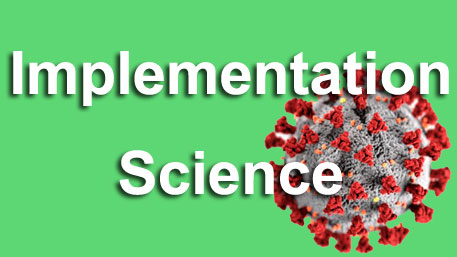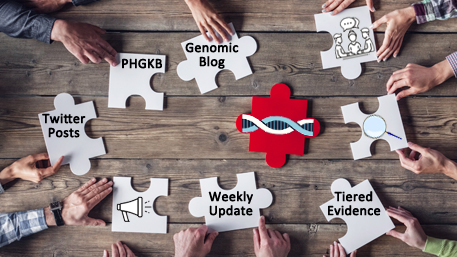Search Results
10 results for cancer
Toward More Precision in Implementation Science in the Age of COVID-19

Implementation science (IS) is “the study of methods to promote the adoption and integration of evidence-based practices, interventions, and policies into routine health care and public health settings to improve the impact on population health.” The various factors that must be taken into consideration in designing, conducting, and evaluating IS studies dictate an inherent “precision”
Posted on byGenetic Counseling in the Time of COVID-19

Genetic counselors play an important role in clinical genetics by helping patients understand their genetic health risks. Due to the COVID-19 pandemic, most clinics and hospitals have restricted in-person delivery of non-essential healthcare services, including genetic counseling, to slow the spread of the virus. However, delaying genetic counseling can be problematic, for example, when genetic
Posted on byImplementation Science to Improve Case Finding, Cascade Screening, and Treatment for Familial Hypercholesterolemia: A Prototype for Precision Public Health Research

Familial Hypercholesterolemia (FH) is a common genetic disorder, affecting more than 1 million people in the United States. FH causes lifelong high levels of low-density lipoprotein cholesterol, and if untreated, leads to a high risk of premature coronary heart disease. Most patients with FH are undiagnosed or inadequately treated with regular or high-intensity statins, leaving
Posted on byCommunication and Information Sharing about Genomics and Precision Health: Opportunities for Improvement

In this blog, we describe our current approach to information sharing based on a recent review of our communication and engagement strategies. In order to improve our approaches to communication, we are asking you, our readers, for feedback—please share your thoughts in the comments section below or send us an email at mailto:genetics@cdc.gov. For the
Posted on byGenomic Medicine Year in Review 2019: What’s Hot for Public Health Impact?

Advances in genomic medicine continue at a fast and steady pace. In a recent paper, The Genomic Medicine Working Group of the National Advisory Council for Human Genome Research of the National Human Genome Research Institute identified the most significant advances in genomic medicine among 48 recognized “accomplishments” published during the 12 months ending August 31,
Posted on byAre we Ready for DNA-based Population Screening? The Need for Large Collaborative Pilot Studies

This blog is a summary of a recent viewpoint published in the Journal of American Medical Association. There is increasing evidence that accepted approaches using medical history-based screening fail to identify the majority of individuals with genetic conditions associated with cancer and heart disease, including CDC tier 1 applications, such as hereditary breast and ovarian
Posted on byHappy Thanksgiving 2019: Collect and Share Your Family Health History: It Could Save Your Life!

Happy Thanksgiving Day! It is time for our yearly message on the importance of family health history to your own health. Year after year we promote the value on family health history around Thanksgiving day and all year round. By knowing and acting on your family history, you can reduce your disease risk and actually
Posted on byPublic Health Perspectives on Ensuring Life Long Benefits of Newborn Screening

This blog post is a summary of a Perspective recently published in Pediatrics that was authored by Alex Kemper of Nationwide Children’s Hospital, Jeffrey Brosco of the Miller School of Medicine, University of Miami, and Coleen Boyle and Scott Grosse of CDC’s National Center on Birth Defects and Developmental Disabilities. Newborn screening is a highly
Posted on byGenetic Counseling and Public Health in the Era of Precision Medicine

In August 2019, the All of Us Research Program announced the funding of a nationwide resource to provide genetic counseling support to one or more million participants in the precision medicine cohort in the United States. Participants from diverse populations will share health information over time through surveys and electronic health records, and they will
Posted on by 1 CommentImplementation science and genomic medicine in action: A case study

There is an urgent need for researchers and implementers of genomic medicine to incorporate implementation science into their translational research efforts. Implementation science is the study of methods to promote the adoption and integration of evidence-based practices, interventions, and policies into routine healthcare and public health settings to improve our impact on population health. But
Posted on by